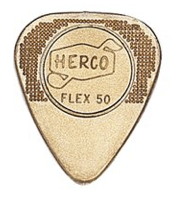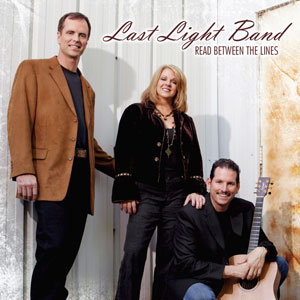All I Really Need To Know in Life, I Learned In A Band
Well, now that I see the title, the subject really seems a little provocative. I didn’t mean for that to happen, but if you have have been reading this so far, maybe it was worth the miscommunication. Of course, not “all of life” is contained here, but it’s a good start.
I spent six years, non-stop, on the road. All during that time I never unpacked my suitcase completely. Even when I went to my parent’s home on a break, I kept everything in my familiar traveling box. The tough thing about traveling in a band are the tight quarters and lack of privacy. Because of this challenge, I learned the art of getting along with people–all kinds of people. To survive, I had to surrender and give up my way to make way for the group. Yes, I had to compromise. I want to humbly share a few nuggets of wisdom I learned while rolling down the endless highway and traversing the airways around the globe, playing in a band.
1. Be kind
Understanding, grace, forgiveness and patience, among other virtues, all come to mind while living close to others. Most days in a band are cool. But when it’s your turn to have a bad day, you want others to show you kindness. Honor the personal space of others.
2. Go the extra mile
Help carry the luggage for the girls in your band; open doors for them. Keep extras in your gear box for when others are in a fix, like extra picks, strings, batteries, etc. Volunteer to do the dirty work like stacking gear in the equipment truck and loading luggage under the bus.
3. Be on-time
The chronically late disrespect others with their behavior. They lose trust and it impacts relationships. Show the rest of the band how important they are by respecting the call-time. Be early!
4. Always tune-up
I think I spend more time tuning than playing. In life it’s important to always be tuning-up our relationships (be aware of my surroundings and the people in them). My relationship to God is most important. If everyone tunes to the same pitch, life is so much better in a band!
5. Hang out with the crew
The crew is your greatest ally; they can make or break you in performance. The best friendships I ever made on the road were with behind-the-scenes people. After a show, ride the bus with the crew. It’ll be hilarious and you’ll always have folks watching out for you. Dis the crew and you’ll soon be out of the band!
6. Be the person others want on their team
Be a person others are grateful for–thankful for the excellence you bring with regard to playing, singing and performing. You help take the band to the next level and you’re a joy to be around.
7. Know your limits but always strive for improvement
Don’t drag the band down by promising what you can’t deliver in performance. Always be learning new things (listening to new sounds, styles, gear, etc.), Don’t settle into stagnation, Grow, grow, grow!
8. Learn the importance of deodorant
Practice good hygiene. Learn how to dress for success in the band. Most social situations will have an unwritten dress code–learn it as fast as you can. Don’t totally “give up” on off days. Others still have to live with you in close proximity.
9. Be a giver
Be on the look-out for ways to bless others. Don’t be the jerk who always lets someone else pick up their tab. Look for ways to anonymously make someone’s day. It’ll be a double blessing.
10. Respect the road manager
We may not always agree with the decisions of our bosses, but be the one who makes their job a little easier through compliance. They have responsibilities and commitments to people and things that don’t always flow into our personal orbit. So understanding goes a long way with them. Don’t sit back and watch injustices pile-up, either. Respectfully and privately convey your grievances, and don’t be a chronic complainer.
11. Know when to leave the band
We all come to the end of a job. We either outgrow the band or the band outgrows us. Maybe it’s just time to move on to a new place. Bring it to an end gracefully. If you are a valuable team member, the news will always hit hard. Give proper notice, speak judiciously to others about it, don’t burn bridges, and, if at all possible, create a lasting legacy that will dispel negative talk after you’re gone.
Christmastime: Music To My Ears
I have to admit it: I’m a sucker for all things Christmas. I always look forward to the day when Sirius XM starts-up their dedicated holiday music channels. I pick the traditional station out of the several offerings–the one that plays the standards with singers like Perry Como, Nat King Cole, and all of the fare that I was raised on.
 Now that the Christmas holidays officially start the day after Halloween, on November 1st (that’s what Wal Mart wants us to think, anyway), we are now given permission to have two full months of Holly, Jolly Christmas and Rocking Around the Christmas Tree to enjoy. I’m not complaining. Even though the leaves are still stubbornly clinging to the trees (it’s November 21st), and I haven’t put my warm-weather clothes away because the temps are leveling-out at 65 degrees here in middle Tennessee, I love listening to Rudolph the Red Nose Reindeer, pretending that the “weather outside is frightful” as I cruise up I-65 toward the mall.
Now that the Christmas holidays officially start the day after Halloween, on November 1st (that’s what Wal Mart wants us to think, anyway), we are now given permission to have two full months of Holly, Jolly Christmas and Rocking Around the Christmas Tree to enjoy. I’m not complaining. Even though the leaves are still stubbornly clinging to the trees (it’s November 21st), and I haven’t put my warm-weather clothes away because the temps are leveling-out at 65 degrees here in middle Tennessee, I love listening to Rudolph the Red Nose Reindeer, pretending that the “weather outside is frightful” as I cruise up I-65 toward the mall.
I also love to haul-out all of the holiday movies, dust them off and make plans to upgrade them from DVD to BluRay. Home Alone, Christmas Vacation, The Grinch, and Elf–I named off movies that are fairly new, even though I still love to watch It’s A Wonderful Life and A Christmas Carol in black and white on Christmas Eve. It seems that everyone loves Christmas or they wouldn’t put those Christmas scenes in non-Christmas movies to make us feel all warm and cozy.
For me, like many adults, I harken back to the day when I could fall asleep in the back seat of my parent’s ’57 Chevy, on the way home from a family holiday gathering; when Dad would lift my half-asleep body out of the car, carry me into my warm bed and tuck me in for the night. I must say, I loved doing that for my own kids.
The one holiday event that I refuse to join is getting up at 2 AM to stand in line at Best Buy or Target on Black Friday. I’ll let my kids do that. Other than that exception, I’ll take everything that Christmas has to give. And it all starts and ends with the music–at least for me.
Songwriter Wisdom, Part 2: Residual Income
What a blessing it is to create something once and receive residual (passive, or recurring) income from it for years to come–even while I am sleeping! If you can score a song on a record, or even better, a hit record, you can make money sitting at home. You may need to keep your day job for a while, but if you have true writing talent (no, your mother’s opinion doesn’t count!), patience, willingness to network with other writers, can live lean and have a little faith, you, too, may someday make a living…making stuff up! I have so much to be thankful for, including my more than 20 years as a professional songwriter. I want to explore the residual income sources available to folks like me!
Broken down into three main sub-categories, here is an example of my own income stream:
BMI (ASCAP ; SESAC)
Each writer (or administrative agent, if contracted to do so) must register his/her works with one of these three U.S. performance rights organizations. It’s their job to keep track of performances throughout the world, and to distribute income quarterly on behalf of the writer and publisher (separate entities), from radio, TV, movies, etc.. BMI says it best about themselves:
BMI is committed to protecting copyright to ensure that its songwriters, composers and music publishers are fairly compensated for the use of their work. BMI also values its relationships with those businesses that use music, offering access to the world’s most popular music for hundreds of thousands of licensees throughout the United States.
Record Companies/ Independent Projects
When I establish my own publishing company–in my case through BMI–I either manage the work by myself, or work with an administrative person or company to take care of that on my behalf. As my self-published songs are recorded by record companies or individuals, they come to me or my “admin” person for a use license. All subsequent income from those sales are funneled through my publishing company and paid to me quarterly. If I sign my publishing over to another publishing company, in whole or in part (forfeiting all or a portion of the ownership of my songs), I will receive only my publisher’s and writer’s share–divisible by how many publishers and writers are on the song. The publishers of the song are responsible to collect the monies related to the song’s usage and to send a royalty check to me each quarter.
CCLI (Christian Copyright Licensing International)
As a writer of Christian songs used in worship services and various religious events throughout the world, I give consent to my copyright administrator to register each of those applicable songs with CCLI. CCLI (similar to what BMI does for me with radio, TV and movies, etc.) keeps track of the world-wide song performances of my songs through the reporting of thousands of licensed users. When I sign-over my songs to another publishing company, they are responsible to register, administrate, receive and distribute CCLI royalties on my behalf (CCLI royalties are distributed twice per year). CCLI can be quite beneficial since a song, especially in the worship music genre, can potentially amass greater income through live church-service performances, increasing revenue beyond the normal shelf-life and commercial sale of a recorded song.
I don’t pretend to qualify as a one-stop information source for songwriters and residual income. This list is, by no means, a complete one. I have only delved into the more general aspects of earning income as a songwriter. However, I do have friends (believe it or not!) who have extensive practical, legal, procedural knowledge and information. These experts can help you–as an individual writer, church, or organization–to find answers to your particular copyright query.
Copyright Solver
ICS Law Group
Remember, each small tributary, or even trickle of income, can together flow into a combined income stream that, even in my case, adds up to a sizable, significant living. The secret is to have many songs working for you. Keep writing, keep the faith and keep in the game–even when it seems that the stream is running dry. Pray for rain!
My Guitar Pick Odyssey
 What a seemingly benign subject: the guitar pick. Most of us kept on using the same type of guitar pick that we were given as kids, along with our first pack of Black Diamond guitar strings and our handy Mel Bay Guitar Method book. Somehow we adapted to a certain comfort level, and that first pick developed into a habit, then an unconscious part of our playing experience.
What a seemingly benign subject: the guitar pick. Most of us kept on using the same type of guitar pick that we were given as kids, along with our first pack of Black Diamond guitar strings and our handy Mel Bay Guitar Method book. Somehow we adapted to a certain comfort level, and that first pick developed into a habit, then an unconscious part of our playing experience.
I started out, like most kids in the 60s, with the teardrop-style Fender medium pick. (It was so cool that Fender was building all of that cool gear in my hometown of Fullerton back then). My favorite was a Fender medium, because it worked well with acoustic and electric. I later moved to the Herco Gold because it had the teardrop shape and the medium thickness, but it also had a raised pattern that doubled as a “slip-proof grip”, with a great surface to grab the strings for those “Billy Gibbons moments”. You could also break strings if you dug-in too forcefully!

To this day, I like to use thumb picks for finger-style playing, and I am still resorting to the Fender medium flat-pick for everything else. Sometimes, when I play my high-string or my 12-string acoustics in a recording session, I will use a thin pick. They create a more percussive sound–kind of like that of playing cards in the spokes of your bicycle wheel (remember that?).
I purchased some equipment lately from Fat Tone Guitars. In the shipment I found a complimentary guitar pick, emblazoned with the Fat Tone logo. They call it the Plexi Guitar Pick. I took it out of the package, grabbed my Les Paul, and was surprised how much I loved the feel, even though it was at least a millimeter, or more, thick. The smooth, rounded ends made it feel at home and familiar at my fingertips.

Because of this revelation, I am going to do more guitar pick exploring. I will start by getting this new plexi pick into rotation, and I will also pay a visit to V-Picks here in Nashville to demo some of the other available “thick pick” options. After all, that first Fender medium was given to me in 1967. It’s about time I pay attention to this rather diminutive, yet important part of my playing!
Tonya Cowart: Safe In the Harbor
It’s always a shock when you hear that a friend has died. It’s especially so when that friend is your age, because you realize how fragile life can be, and that tomorrow isn’t promised to anyone, regardless of age. In the case of my friend Tonya Cowart, I heard about it through a Facebook message from a mutual friend in Mobile, Alabama, where Tonya lived her whole life.
 |
| (L to R) Scott, Tonya and Danny |
I’ll never forget the generosity that Tonya and her husband, Danny, showed me over twenty years ago when they asked me to produce their vocal group, Last Light Band–which also included Scott McLeod–in the studio. They gave me a lot of space to be creative and, basically, kicked me off into a career of producing and recording my own projects. My work on their first record gave me the confidence to head-into a very fulfilling songwriting career with Integrity Music, right there, nestled in the cozy Christian music community of Mobile.
My songwriting with Integrity drew me away from working with the Last Light Band and, eventually, my family moved to North Carolina and then to the Nashville area, where we have been living for the past ten years. A mutual friend from Mobile, who now lives in Murfreesboro, TN, and attends a church I served recently, walked up between services and handed me a cell phone. I was delighted to hear , “Hi Jamie, this is Tonya!” That was a year ago. Since then, I haven’t seen or heard about Tonya, Danny or Scott until the awful news that she had passed on November 9th.
I don’t know yet how she died; it doesn’t matter anyway. Her voice, sweetness, vulnerability and love for God and people resonate in my memory. As a teen-age mother, she struggled through many difficulties, and even throughout her life–filled with loving family, friends and a devoted husband–the bruises from that tough journey were never far from the surface. I believe that is why she connected so well with her audiences, and that she could sing her songs with such commitment and authenticity. I am forever grateful that she recorded a song I co-wrote with Nancy Gordon called Belle of the Ball. The many awards the Last Light Band has garnered over the years publicly confirm that Tonya, Danny and Scott have touched countless lives with their music.
After hearing the sad news, I watched a video of Tonya singing Safe In the Harbor. It’s spine-tingling to hear her sing those lyrics, knowing she is now in Heaven and safe there in the arms of her Savior. I’ll miss you, Tonya.
Copyright © 2002- Jamie Harvill. All Rights Reserved. Website By Josh Harvill.

